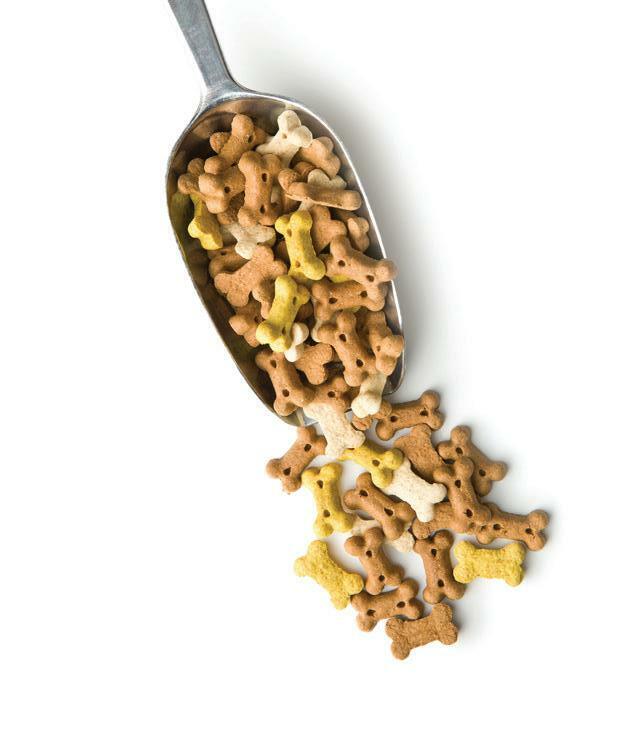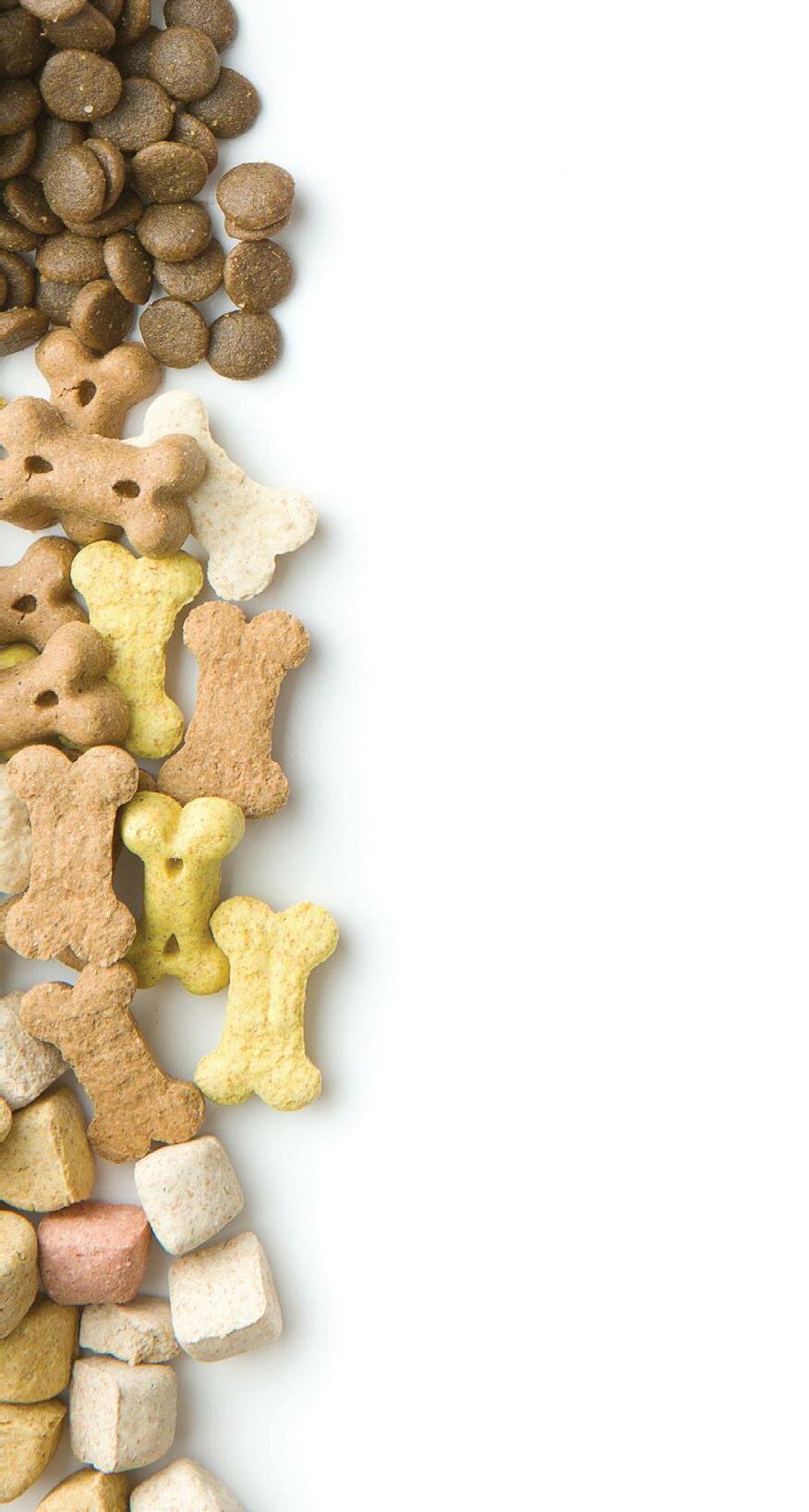
3 minute read
PETS
STRATEGIES FOR DEALING WITH PET WEIGHT PROBLEMS
By J. Lang
Advertisement
Today's pets are experiencing problems with obesity, just like humans. Obesity is an issue that can affect overall health. Sometimes, the cause is simple overindulgence in goodies that are high in calories stored in the body as fat, but other factors can also be at work. Staying trim is as important to your pet's health as it is to your own, so consider these five strategies to help reduce those extra pounds and help your pet live a longer and healthier life.
Review Feeding Habits Take a close look at how much food you are providing for your pet on a daily basis. You may give a certain amount that was suitable for your pet's growing years but is too much for his or her current metabolic needs. If you feed your pet in the morning, consider cutting back to a single meal per day or reduce the portions you normally offer.
Consider a Change in the Type of Food The pet food itself can be too high in calories. Consider changing to a "low-fat" or "weight-control" pet food. Most brands have a variety of specialized formulas to suit the needs of young animals, older animals and those dealing with specific issues. Always remember when changing to a new food, mix in gradually, increasing amounts of the new food with the older type to avoid tummy upsets.
Monitor Treats Carefully It's natural for pet owners to want to reward their pets with a tasty treat for being good. However, these treats can contain high amounts of fat and sugar, which can contribute to excess weight. A "treat" can also include those little tidbits of people food you may be in the habit of "sharing" with your pet. Resist the urge to give your pet those small pieces of human food that can add empty calories to their diet and can lead to weight problems. If you still feel you need to reward your pet for good behavior, change to healthier treats that are lower in sugar and fat. These are available online and at most retail pet stores.


Increase Daily Exercise It's not uncommon for pets to get less exercise as they age. They may not have the exuberant energy of their younger days and may be satisfied with shorter walks or workouts. However, they still need daily activity to burn fat and keep muscles strong and joints limber. Try increasing the amount of time you spend walking or exercising your pet. This will help with your own weight management and provide more time to bond with your pet. As with humans, you should always increase daily exercise levels gradually to avoid muscle soreness and fatigue in your pet. Take Your Pet in for a Checkup Your veterinarian can be a helpful partner in managing your pet's weight. Systemic diseases can contribute to weight problems in pets. A thorough physical exam with blood testing can reveal any problems with internal organs that may be causing your pet to put on those extra pounds. If a problem is found, your vet can provide medication and dietary advice to help your pet reduce weight and manage the health issue. Weight problems can be as stubborn in pets as they are in people. If you take a focused approach to help your pet lose weight and stick to it over time, you will help your pet maintain a healthier weight throughout its life.












